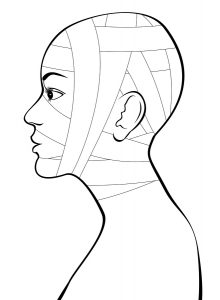Contusions Versus Concussions
 Michael Babboni
Personal Injury
For an issue as problematic as traumatic brain injury is, one may think that all the different forms it can take that would be widely known and understood. However, traumatic brain injury or TBI, is much more complicated than all that. The brain is a delicate organ that is responsible for so much of our abilities and despite giant leaps in medical understanding and technology, there is still a lot we don’t understand including traumatic brain injury.
Michael Babboni
Personal Injury
For an issue as problematic as traumatic brain injury is, one may think that all the different forms it can take that would be widely known and understood. However, traumatic brain injury or TBI, is much more complicated than all that. The brain is a delicate organ that is responsible for so much of our abilities and despite giant leaps in medical understanding and technology, there is still a lot we don’t understand including traumatic brain injury.Though our skull is thankfully protecting our brains from most injury, it cannot protect it from everything and occasionally is partially responsible for the injury. Due to the many complicated tasks assigned to the brain, TBI can come in several different forms and it can be hard to differ between the types. One of the most common errors to make is assuming that contusions and concussions are the same thing. Though they are similar, there are some key differences between the two.
It is important to acknowledge that they do have a few qualities in common including:
- Both are head injuries caused by trauma
- Both are surprisingly common
- Both are very serious conditions that could lead to life-long complications
However, the similarities end there. The difference between contusions and concussions can really boil down to two basic concepts:
- Contusions are localized, whole concussions are widespread
- Contusions are macroscopic, while concussions are microscopic
In order to better understand these concepts, you’ll need to know a bit more about brain anatomy.
A contusion is a type of bruise. Bruises are a pretty common injury that you can easily get just from banging your arm against a hard object. This caused bleeding within or beneath the skin. Within the days following, the injury will often turn purple and perhaps a variety of other colors as the body is attempting to repair the mechanisms that have degraded due to the injury.
The same thing can happen to the brain except the bruises are not located in a place that you can see. Thanks to the help of imaging technology, these bruises can be made visible through the help of a scanner. However, the fact that you can see it with the help of a scanner means that it is “macroscopic” in nature. Although contusions can be multiple, they only occur in a single or localized location in the brain.
Some of the symptoms you can expect from a brain contusions may include:
- Numbness
- Difficulty with motor coordination
- Memory loss
- Attention problems
- Emotional disturbances
The prognosis for a contusion depends on the severity of the injury. Minor contusions may be able to heal on their own without medical treatment, however extreme severe contusions can cause herniation of the brain, and eventually coma.
So how does this differ from a concussion?
A concussion is typically less severe than a contusion, but still can be a very serious form of TBI. In a pure concussion, there is no macroscopic, localized collection of blood that you find in a brain contusion. Any bleeding that occurs is at a scale that escapes detection by the eye even when helped by a scanner. In a concussion, there is diffuse, widespread, homogeneous impairment of brain tissue, but nothing that will show up as a macroscopic, localized abnormality on a scan. In fact, not even a microscope could see the changes that occur in a concussion. This can make concussions especially challenging to diagnose.
Common symptoms of concussions can include:
- Loss of consciousness after an impact to the head
- Nausea and vomiting
- Confusion
- Blurred vision
- Short-term memory loss
If you lose consciousness even only for a few seconds after a head injury, you need to receive medical attention as soon as possible. Luckily, most concussions only require bed rest, fluids, and pain relievers in order to recover. However, it is important to keep up with follow up medical care to ensure there won’t be any complications later on.
While a person with traumatic brain injury might experience a contusion without a concussion or a concussion without a contusion, having one does not preclude the other. Though it is quite common for both to occur together. So while these two types of traumatic brain injury are different from each other. A victim may be unlucky enough to have both.
In either case, if you have suffered a hard blow to the head or your head has been jerked back and forth in a violent manner, you may have a TBI of some form. Though the injury suffered may be minor, many symptoms of contusions, concussions and other types of TBI may not appear until later on or won’t be obvious at first. That’s why you should make sure to seek out medical attention immediately to stay on the safe side of things.
